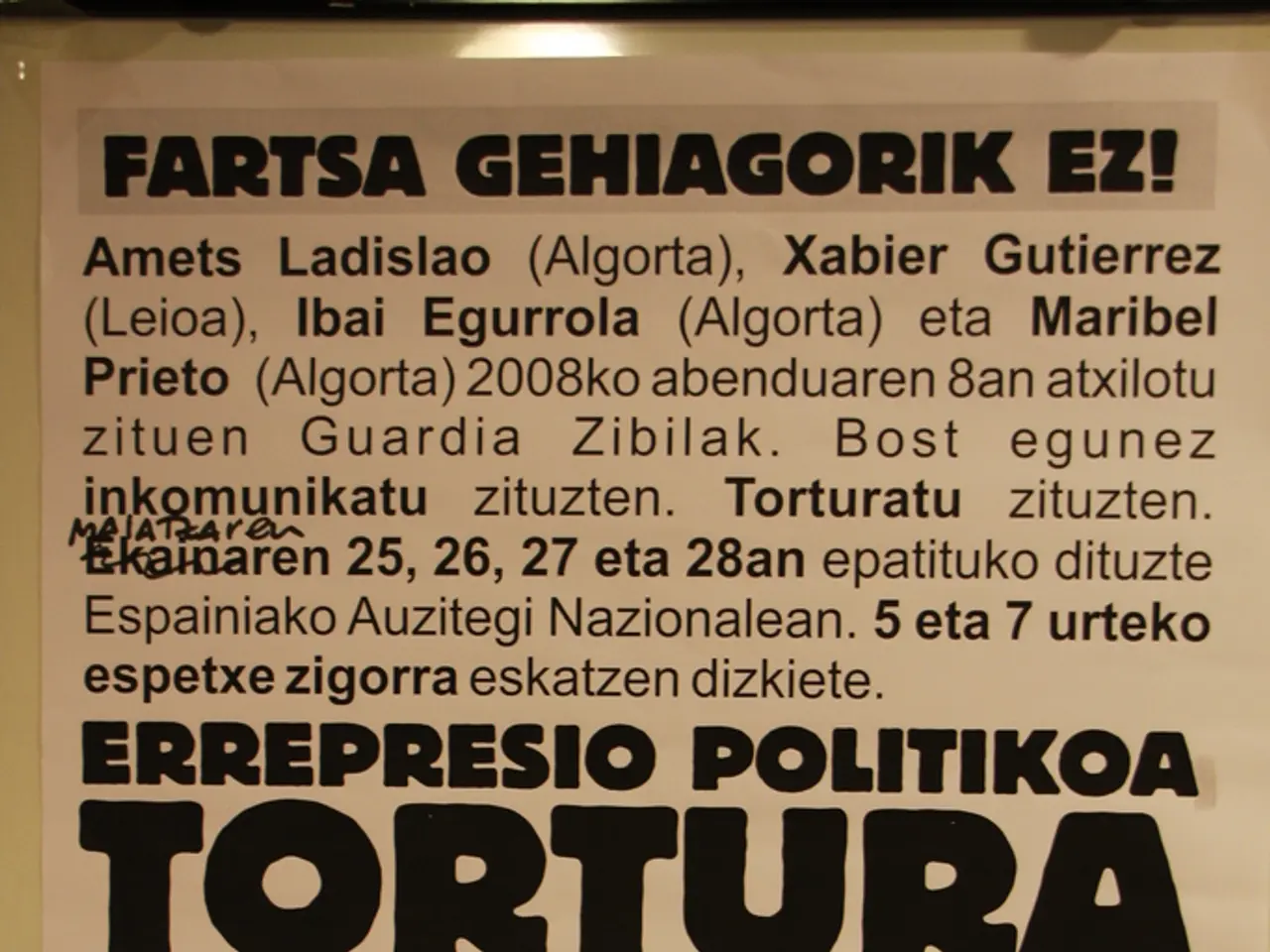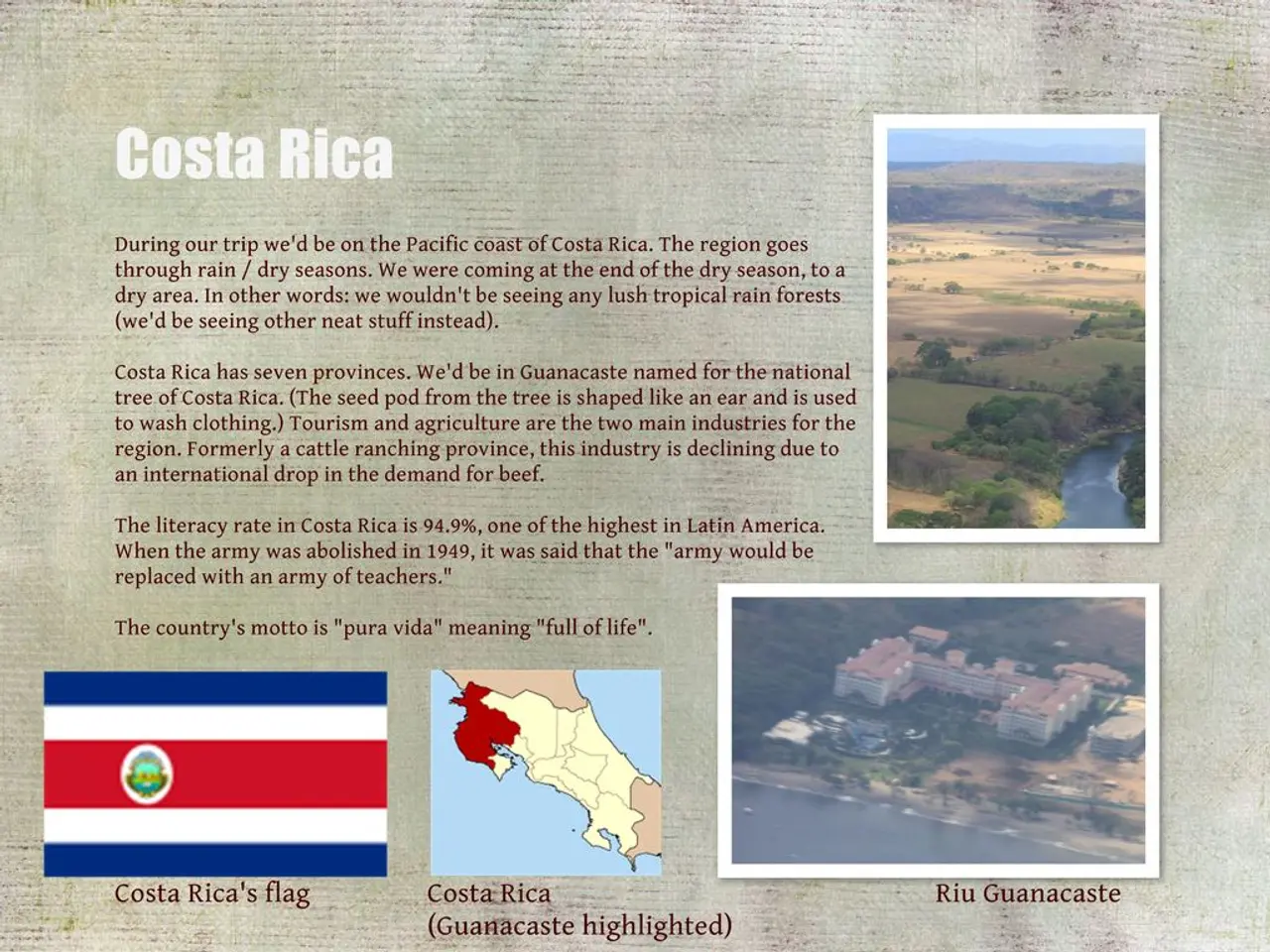Narco-regime's political captive: Tomás Uribe, after a dozen years of imprisonment tied to his father Álvaro Uribe's case
Former Colombian President Álvaro Uribe Vélez Sentenced to House Arrest
\n\n In a historic ruling, Judge Sandra Heredia of the 44th Criminal Court of Bogotá has convicted former Colombian President Álvaro Uribe Vélez for procedural fraud and bribery of witnesses. The sentence includes a 12-year term of house arrest and a fine of $3.2 billion pesos [1][2][3].
\n\n Judge Heredia's ruling stems from allegations that Uribe attempted to obstruct justice in 2017-2018 by offering benefits to paramilitary witnesses to testify favorably for him. This conviction marks the first criminal conviction of a former Colombian president, making it a significant milestone in Colombia’s judicial history.
\n\n Throughout the trial, Judge Heredia has faced numerous challenges, including motions to recuse her, disciplinary complaints, and legal challenges by Uribe's defense. Despite these obstacles, higher courts have rejected these motions, allowing the trial to proceed [2].
\n\n The case has been highly controversial due to its political implications in Colombia's polarized environment. Uribe's supporters, along with some legal experts, claim there is insufficient evidence to convict him, alleging political pressure on the judiciary. On the other hand, others view the ruling as a milestone for legal accountability, particularly considering Uribe’s long history of accusations linked to paramilitary collaboration and human rights abuses during his administration [2][3][4].
\n\n Uribe's son, Tomás Uribe, has expressed strong opposition to the verdict on social media platforms, questioning the legitimacy of the judicial decision and pointing out alleged irregularities around the judge in charge of the process. However, the article does not provide new facts related to Tomás Uribe or the earlier mentioned threats against Judge Heredia or the alleged irregularities around the judge in charge of the process [1][2].
\n\n The controversy surrounding this case has exposed deep divisions within Colombian society and raised concerns about judicial independence and security for those involved. As the appeal process begins, this ruling is expected to continue provoking debate and shaping Colombia's legal landscape [1][2].
- The conviction of former Colombian President Álvaro Uribe Vélez for procedural fraud and bribery of witnesses marks a significant milestone in the realm of crime-and-justice and politics, as it is the first criminal conviction of a former Colombian president, setting a precedent for future policy-and-legislation concerning war-and-conflicts and general-news regarding corruption in public office.
- The ruling against Uribe has sparked heated debates within Colombia's society, with his supporters questioning the legitimacy of the judicial decision, while others view it as a victory for justice and legal accountability, especially considering Uribe’s long history of accusations linked to paramilitary collaboration and human rights abuses during his administration.
- With Uribe's son, Tomás Uribe, expressing opposition to the verdict on social media platforms, concerns about the security of Judge Sandra Heredia and other parties involved in the trial have arisen, further highlighting the politics involved in this high-profile and widely-covered case, which is expected to continue shaping Colombia's judicial landscape as the appeal process begins.








